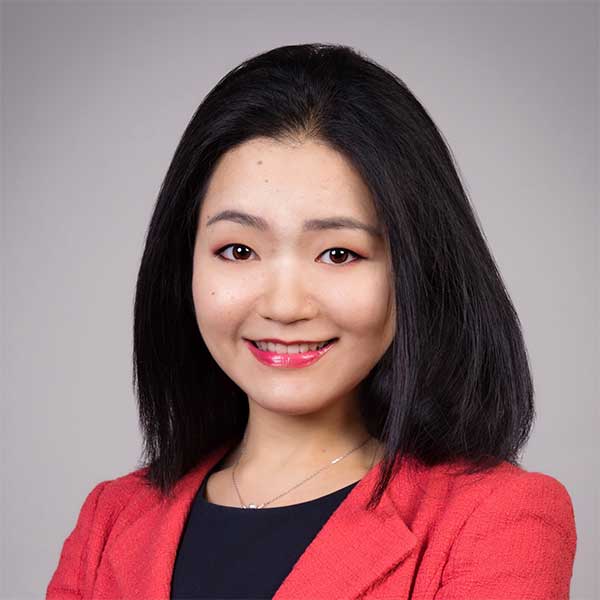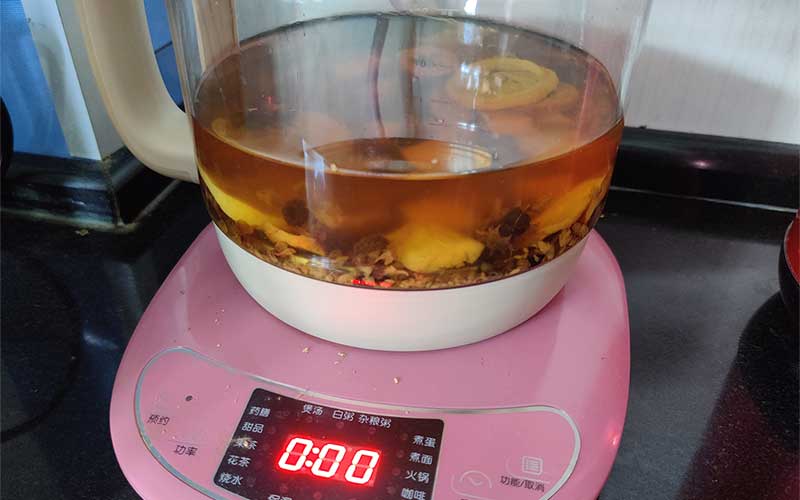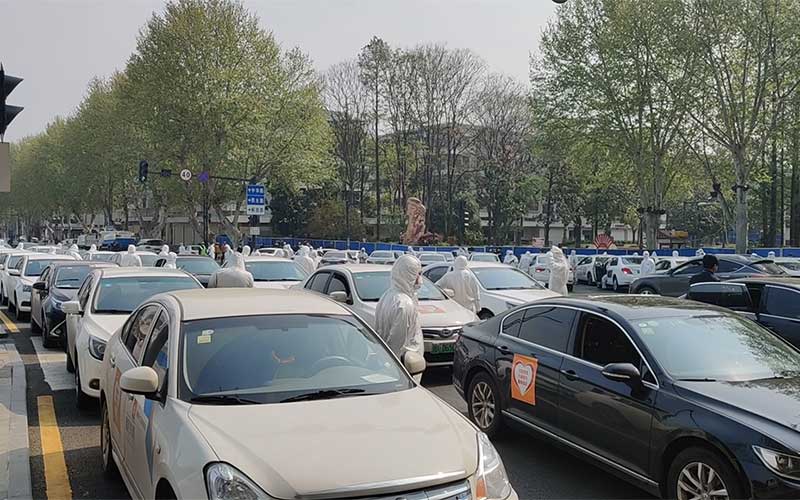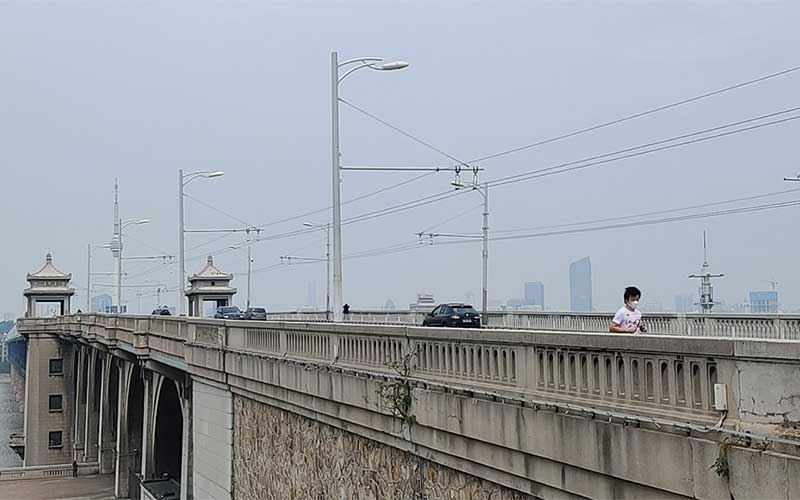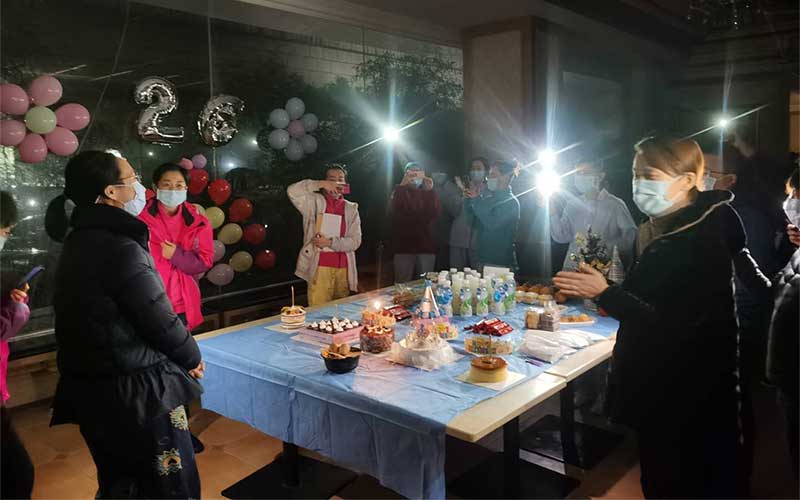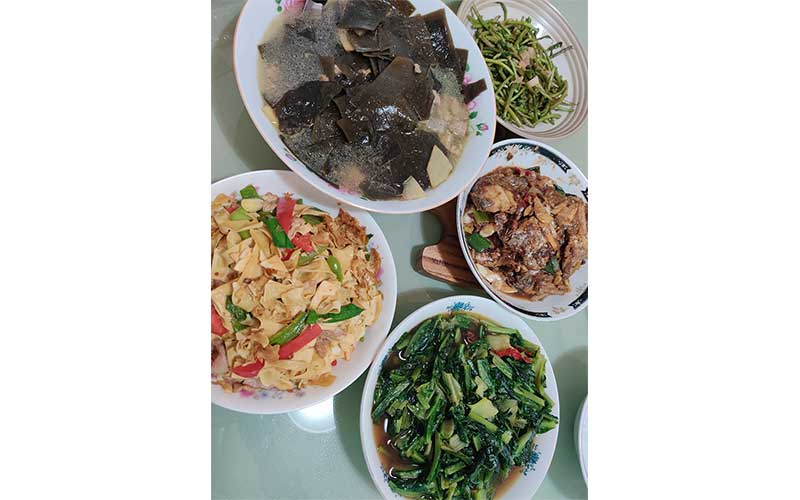What do you want people to know about your 62-day lockdown?
My family was lucky—no one close to us contracted Covid-19. I do know a number of people who did get the virus, though. Many residents in Wuhan had people close to them die or were severely affected because of city’s normal operations changed dramatically. Their stories and experiences affected me deeply.
Despite the tragedy, many people worked together during the lockdown. This was due to many heroic actions, the collective effort of residents and the government, and support from all over the country. My wish is to bring hope to other parts of the world that are battling the pandemic right now.
Looking back, I think that the virus and the lockdown helped me become a more compassionate and understanding person. I learned first-hand how our own experiences and interests inform our views about certain events and situations. I also learned that it’s incredibly important to hear stories about people we don’t understand or necessarily agree with, so that we can stay open and pursue a productive dialogue.
Right now, with the virus still out there, the best we can do is to protect ourselves and those around us. That means being kind and helpful and doing what science and global public health experts says: wear a mask, wash hands, and practice social distancing.
The virus created so much worry, fear, and anger in people. The global divisiveness is real and disconcerting. But it’s also been a call-to-action for a lot of people, for them to be kind and do the right thing for others. I hope that we will see more love and less hatred in the future.
What was your daily life like during lockdown?
After waking up, I’d reach for my phone right away. I’d look through news and I’d check WeChat for any updates on the virus, the lockdown, and to see how my friends and family were doing in Wuhan, New York City, and around the world. I also searched for personal protective equipment and essential medical supplies in my network because I wanted to find and donate them to support local hospitals in critical need. My screen time during the lockdown skyrocketed.
My family and I took our temperatures twice each day to know our baseline, too. I made sure our family got enough protein, immune boosters, water, and sleep and I was very strict about hygiene and cleaning everything.
I tried to stay active, too, but options were limited because no one could go outside. So, I did mostly HIIT (high-intensity interval training) and barre exercises that I found on fitness apps. I also practiced making all sorts of traditional Chinese food. In New York City, I mostly eat take out, so cooking was fun and new, and it broke up the day.
A big part of everyday was getting the food and supplies for my family and neighbors. I helped coordinate shopping for about 50 families in our apartment block. That meant collecting lists from them and working with other volunteers to do the shopping. Then, we distributed the food and other items to each family. It was a huge task that took a lot of people working together to make that happen.
What was it like coming back to the U.S.?
When I heard that it was okay to travel again, I started looking for flights, but they were so expensive, especially at first. Flight availability changed quickly, too. When I found a flight to New York City, I only had two days between booking it and leaving.
Although there were many protocols and rules to follow, I was still a bit nervous, especially during a connecting flight from Los Angeles to New York City. I didn’t want to take any chances, so I don’t think I moved my mask for more than a sip or two of water over the five or so hours of U.S. travel time.
I am still in self-quarantine and haven’t been out yet to get a sense for how New York City has changed. Fortunately, I worked remotely from China and now work remotely from my apartment. I’ve been with HSBC for nearly nine years and I love my job. I manage transaction approvals for investment banking business across all industries, and I evaluate strategic innovation investment opportunity for the bank.
How did the lockdown and virus change your life?
I’ve always been a very determined, goal-oriented person. I chose Rochester because of its rigorous academic reputation and its strong ranking, especially in economics. I am still a very hard-working person, but I think I’m more patient now. This virus has made me really think about how to embrace the University’s motto of “ever better,” too. I want to make more of a difference in the lives of others, starting right now. This means paying attention to the people around me and doing something as simple as smiling or really listening, or doing something “big,” like volunteering for organizations or contributing to projects that address the economic and public health challenge triggered by Covid-19.
How has the virus affected your relationship with your family?
My parents and I have always been close, but now we are really close. Before the virus, we talked via video every week or so. Now, we text or video chat almost daily. The virus has underscored how temporary things can be. It has underscored how important my family is to me.
